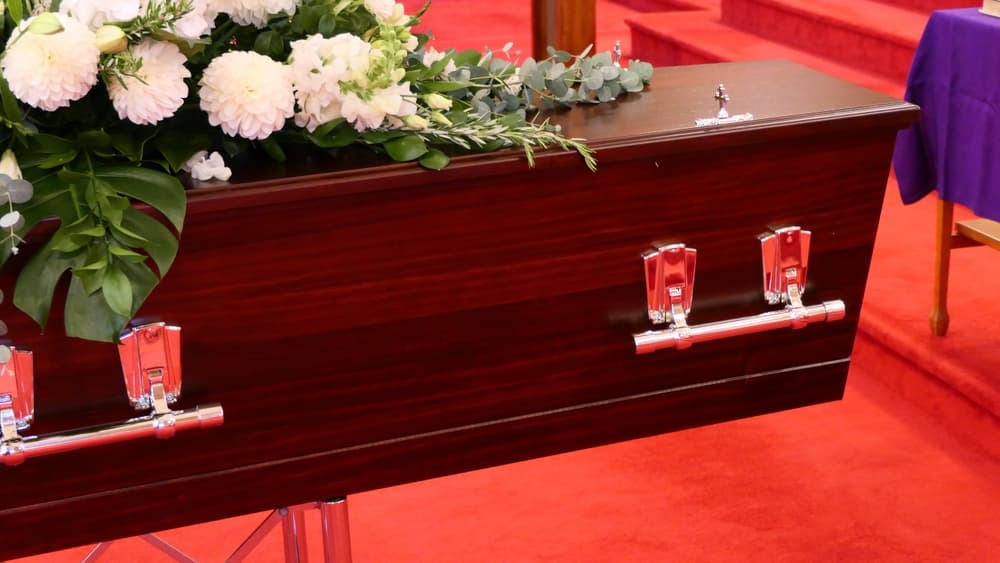When a loved one’s life is tragically cut short due to the negligence or intentional act of another, families often seek justice and financial restitution through a wrongful death lawsuit. One of the most pressing questions for families considering this legal step is, “How much is the average wrongful death settlement?”
The average wrongful death settlement can range widely and depends on various factors. The best way to determine whether you have a wrongful death and how much it may be worth is to discuss your situation with an experienced wrongful death lawyer near you.
The Complexity of Valuing Wrongful Death Claims
Valuing a wrongful death claim is a difficult process. Unlike legal claims with more direct economic losses, wrongful death settlements must account for various tangible and intangible factors. These can include:
Medical Expenses
Medical expenses form a large part of wrongful death claims, encompassing the costs incurred for the medical care of the deceased before their death. This can include emergency medical services, hospitalization, surgeries, treatments, and medications received as a direct result of the injury or condition that led to the death. These costs can be substantial, especially in cases where the deceased underwent extensive medical procedures or had a prolonged hospital stay. A lawyer can calculate these costs accurately and advise you on how to proceed.
Funeral and Burial Costs
The funeral and burial expenses are also recoverable in wrongful death claims. These costs can vary widely depending on the type of funeral service, burial, or cremation chosen by the family. It includes the cost of the funeral home services, casket or urn, burial plot, headstone, and other associated expenses like transportation and flowers. While these expenses may not be as substantial as medical bills, they are nonetheless a financial burden that the family of the deceased must bear.
Lost Wages and Benefits
One of the most significant components of a wrongful death settlement is the compensation for lost income and benefits. This accounts for the income the deceased would have earned had they not died. Calculating lost income involves considering the deceased’s current earnings at the time of death and projecting what they would have reasonably earned in the future, including promotions, raises, and other employment benefits. This projection considers the deceased’s age, career, and life expectancy, making it a complex but essential aspect of wrongful death claims.
Loss of Inheritance
Loss of inheritance is a less direct but still important financial impact of wrongful death. This aspect of the claim considers the potential savings and assets the deceased would have accumulated and left to their heirs had they lived a full life. The calculation typically involves an estimation of the deceased’s potential future earnings and savings over time, providing compensation for the wealth that would have been passed down to future generations.
Loss of Consortium and Companionship
Loss of consortium and companionship addresses the emotional and relational loss experienced by the family members due to the death. Consortium refers specifically to the loss suffered by a spouse due to the death, encompassing aspects of companionship, love, affection, and sexual relations. The loss of companionship generally refers to the emotional support, care, and friendship the deceased provided to family members, including children and parents. These losses are deeply personal and subjective, making them challenging to quantify.
Pain and Suffering of the Decedent
Finally, compensation for the pain and suffering of the decedent before passing is another component of wrongful death claims in some states. These damages recognize the physical and emotional suffering experienced by the deceased from injury until death. Damages for pain and suffering take into account the severity of the injury, the level of consciousness of the deceased, and the duration of their suffering. Courts intend compensation damages for pain and suffering to acknowledge the non-economic damages endured by the deceased during their final moments or days.
Factors Influencing Settlement Amounts
The amount of a wrongful death settlement can vary widely based on several factors:
The Deceased’s Age and Health
In wrongful death cases, the age and health of the deceased at the time of death significantly influence the settlement amount. Generally, younger victims with potentially longer working lives ahead of them result in higher settlements. This discrepancy is because calculating lost wages and benefits considers what the deceased would likely have earned over their expected working life. In the case of younger, healthier individuals who have a longer potential career span and more years of earning capacity, this can lead to substantial settlement amounts. Conversely, older individuals closer to retirement age may have lower potential earnings, affecting the settlement calculations.
Circumstances of Death
The circumstances surrounding the wrongful death play a role in determining the settlement amount. Cases involving egregious negligence or intentional misconduct often lead to higher settlements. For instance, deaths resulting from a drunk driving incident, a blatant violation of safety protocols, or intentional harm carry a higher degree of culpability, which can influence the jury’s or the insurer’s perception of the case. In instances where the defendant’s actions are particularly reprehensible, courts may punitive damages to punish the wrongdoer and deter similar actions in the future, increasing the total settlement amount.
The Deceased’s Earning Capacity
The earning capacity of the deceased before their death is another factor in wrongful death settlements. Higher earners typically result in higher settlements due to the substantial economic loss their death represents. The settlement aims to compensate for the financial support the deceased would have provided to their dependents or family members. This includes their current income and expected earnings, raises, promotions, and other benefits. In cases where the deceased was a high earner or had a high potential for future earnings, the economic impact of their death is significantly higher, leading to larger settlements.
Jurisdictional Variances
Wrongful death settlements can vary considerably from one jurisdiction to another. Each state has its own laws and statutes governing wrongful death claims, including who can file a claim, the types of damages that victims can recover, and caps on certain types of damages. For example, some states have a cap on non-economic damages like pain and suffering, which can limit the total settlement amount. The legal landscape of the state where a victim files a claim will play a significant role in shaping the settlement’s structure and size.
Insurance Policy Limits
The insurance policy limits of the liable par may influence the settlement amount in a wrongful death case. In many cases, especially those involving individual defendants, the insurance coverage caps the maximum amount the company will pay out a settlement. Even if damages exceed the policy limits, the insurance company will not pay more than that. In cases where the defendant is a business or corporation, they may have higher insurance coverage limits, potentially leading to larger settlements.
Average Settlement Amounts: A Misleading Concept
The concept of an “average” settlement amount in wrongful death cases can be deceptive and may not provide a clear or realistic expectation for individuals seeking justice through such lawsuits.Every case is different, and looking at previous settlement offers without context will not give you a realistic idea of what to expect.
Wrongful death settlements can vary dramatically, with some cases settling for amounts in the lower thousands. In contrast, others, particularly those with high-profile or especially egregious circumstances, may result in multi-million-dollar payouts. This wide range in settlement figures is attributable to the specific details of each case, including the circumstances of the death, the deceased’s age and earning capacity, the jurisdiction where the survivors file the lawsuit, and the available insurance coverage.
High-profile cases often attract significant media attention and can lead to substantial settlement amounts, especially if the responsible party is a large corporation or a high-profile individual. These cases may involve punitive damages, awarded not just for compensatory reasons but also to punish the defendant for particularly reckless or malicious behavior. The publicity and the punitive element of these cases can inflate the settlement amounts, skewing the perception of an “average” wrongful death settlement.
It’s also important to consider that each wrongful death case is unique, with its own set of variables. The nature of the wrongful act, whether a case of medical malpractice, a fatal car accident, a workplace incident, or another type of negligence, greatly influences the settlement amount.
The economic losses calculated in the settlement – including lost income, medical expenses, and funeral costs – depend heavily on the deceased’s personal and financial circumstances.
The emotional and non-economic aspects, such as loss of companionship, pain and suffering, and loss of consortium, also play a significant role in determining settlement amounts. These elements are inherently subjective and vary greatly from case to case, further contributing to the wide range of settlement figures.
Given these factors, pinpointing an “average” settlement amount can be misleading and might not accurately represent what a claimant can expect in their case. For individuals exploring a wrongful death lawsuit, your case will be evaluated on its own merits, taking into account the unique circumstances surrounding the wrongful death and the specific losses incurred.
The Settlement Process in Wrongful Death Cases
Settlements in wrongful death cases typically occur through negotiation, where the plaintiff’s legal representatives discuss with the defendant or their insurance company. This process involves several key considerations.
Initially, the plaintiff’s attorney gathers and presents all relevant evidence to establish the defendant’s liability and the extent of damages suffered. This evidence may include medical records, expert testimony, evidence of lost income and earning capacity, and documentation of non-economic damages like pain and suffering. The strength of this evidence can significantly influence the opposing party’s willingness to offer a fair settlement.
The plaintiff’s legal team will also assess potential jury verdict outcomes. This involves analyzing how a jury might respond to the evidence and testimonies presented in the case. Attorneys often use their experience and knowledge of similar cases to predict jury reactions, informing their negotiation strategy. The aim is to reach a settlement that closely aligns with what a jury might award, considering the specifics of the case.
Another important aspect influencing the settlement process is the desire of both parties to avoid the uncertainties of a trial. Trials can be unpredictable, lengthy, and expensive. They also open the possibility of public scrutiny, which some defendants may prefer to avoid. The plaintiff, on the other hand, might wish to avoid the emotional strain of a trial. These factors can motivate both parties to reach a mutually agreeable settlement.
The Decision: Settlement or Trial?
Deciding whether to accept a settlement offer or proceed to trial is a big decision in wrongful death cases. Each option carries its own set of advantages and disadvantages.
Settlements offer a guaranteed outcome, providing the plaintiff with a certain amount of compensation without the need for a trial. This route can be less stressful and more straightforward, offering a quicker resolution to the legal process. Settlements also provide a degree of privacy, as the details are not typically made public. However, the downside is that settlement amounts might be lower than what a jury might award. Insurance companies often calculate settlement offers based on their assessments of what the case is worth, which may not fully align with the plaintiff’s expectations or needs.
On the other hand, proceeding to trial can lead to higher compensation if the jury sides with the plaintiff. Trials allow for a more public airing of grievances and sometimes result in punitive damages, which are not typically part of settlement negotiations. However, trials are inherently unpredictable. Even with strong evidence, there is no guarantee of the outcome. They can also be lengthy, emotionally draining, and expensive, with costs accumulating over time. Furthermore, if the trial does not result in a favorable verdict, the plaintiff may end up with any compensation for their losses.
Given these complexities, plaintiffs should make the decision to settle or go to trial in consultation with an experienced wrongful death attorney. An attorney can provide valuable insights into the strengths and weaknesses of the case, the potential risks and rewards of going to trial, and the likelihood of achieving a higher settlement through negotiation. The decision to go to trial is highly personal, and plaintiffs should understand the legal landscape, the specifics of the case, and the needs and goals of the plaintiff and their family before deciding whether to take a settlement or go to court.
Contact a Wrongful Death Lawyer

Determining the value of a wrongful death settlement involves a comprehensive evaluation of many factors. There’s no simple answer to the average settlement amount. For families dealing with wrongful death, seeking competent personal injury lawyer is the best choice to do to make informed decisions and pursue fair compensation. While never replacing a loved one, this compensation can provide financial stability and a sense of justice, helping families move forward.


